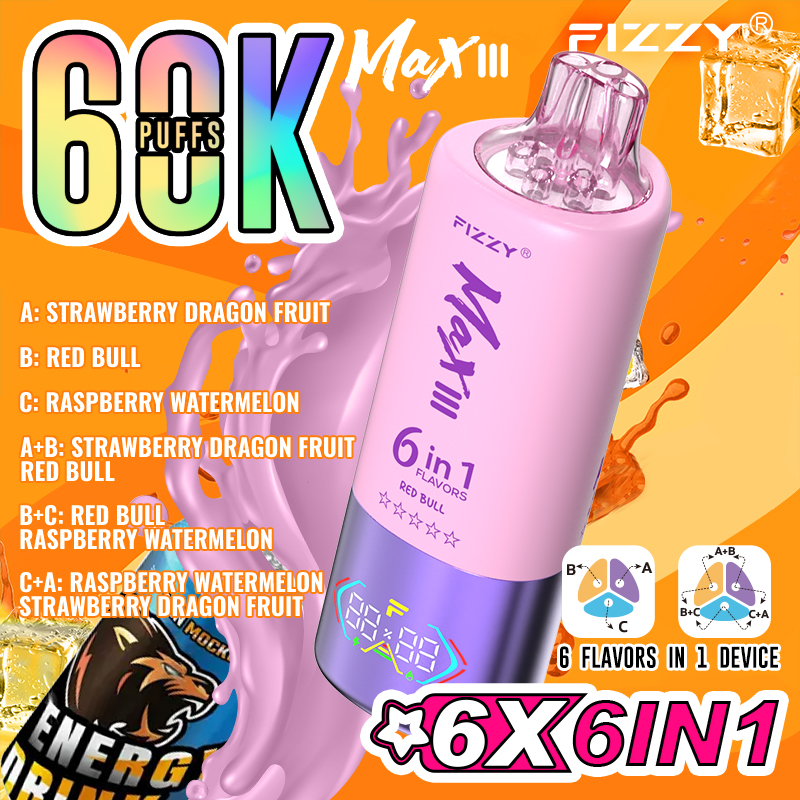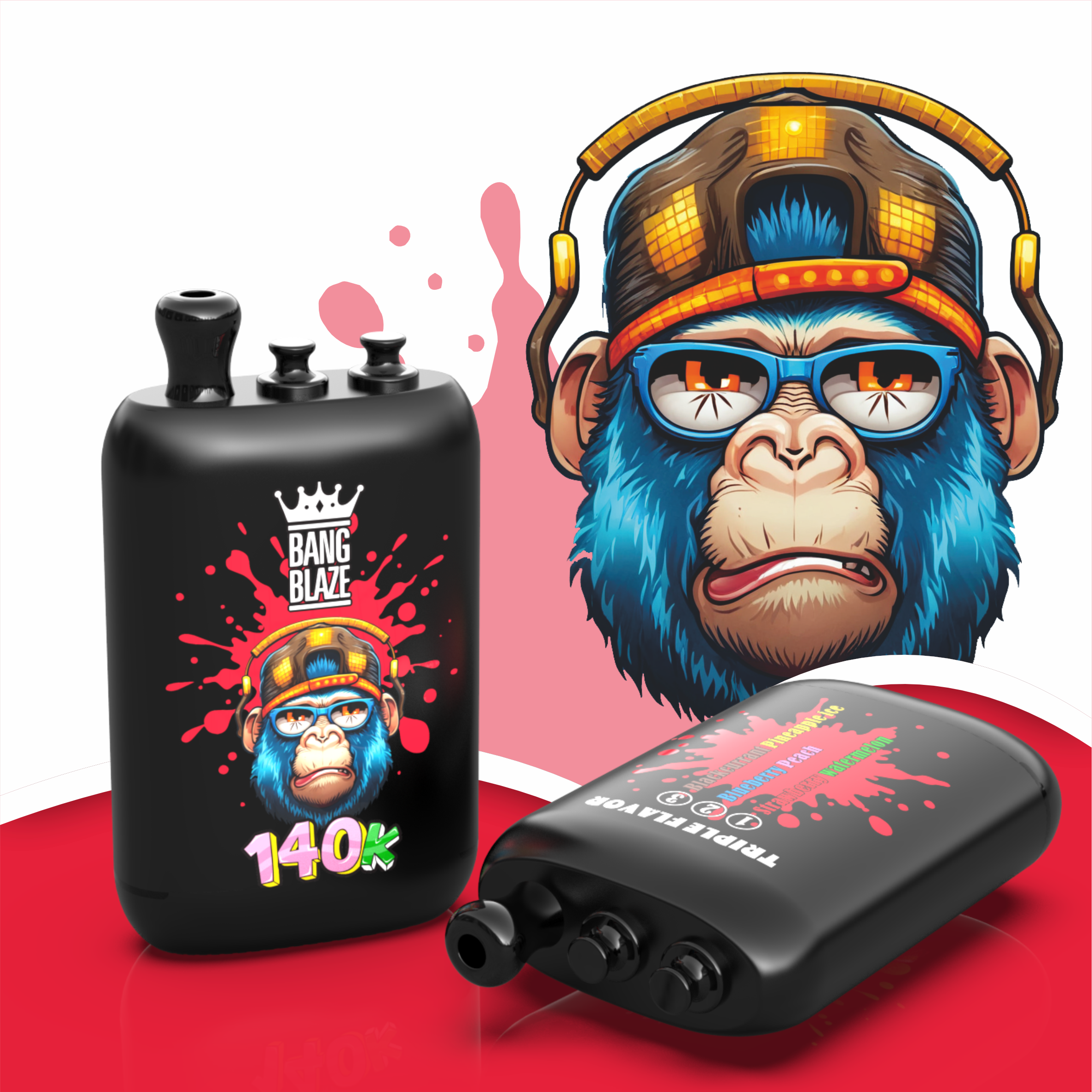Is Vaping Better Than Smoking?
2025-06-16
That's one of the most important public health questions today, and the answer has a crucial **nuance**:
**For current adult smokers who completely switch to vaping:**
**Yes, vaping is generally considered significantly less harmful than continuing to smoke traditional cigarettes.** Major health bodies (like Public Health England, the Royal College of Physicians in the UK, and the National Academies of Sciences, Engineering, and Medicine in the US) agree on this based on current evidence.
### Why Vaping is Less Harmful than Smoking (for smokers who switch):
1. **No Combustion/Tar:**
Cigarettes burn tobacco, creating **tar** and thousands of toxic chemicals, including **70+ known carcinogens** (like benzene, formaldehyde, nitrosamines). This combustion is the primary cause of smoking-related cancers, COPD, and heart disease.
Vaping heats e-liquid to create an aerosol *without burning anything*. This eliminates tar and dramatically reduces the number and levels of harmful chemicals inhaled.
2. **No Carbon Monoxide:**
Cigarette smoke contains high levels of this poisonous gas, which binds to red blood cells and reduces oxygen delivery. Vaping produces no carbon monoxide.
3. **Fewer Toxins:**
While vape aerosol isn't "just water vapor," studies consistently show it contains **far fewer toxicants at much lower concentrations** than cigarette smoke.
**Public Health England estimates e-cigarettes are around 95% less harmful than smoking.**
### Key Caveats & Why "Less Harmful" ≠ "Safe" or "Good"
1. **Not Harmless:**
Vaping still introduces potentially harmful substances into your lungs:
* **Nicotine:** Highly addictive, raises blood pressure/heart rate, harms adolescent brain development.
* **Ultrafine Particles:** Can cause lung inflammation and irritation.
* **Flavoring Chemicals:** Safety for *inhalation* (not just ingestion) is often unknown; some (like diacetyl) are linked to lung damage ("popcorn lung").
* **Trace Metals & Volatile Organic Compounds (VOCs):** Can come from the device or e-liquid.
* **Base Liquids (PG/VG):** Long-term effects of inhaling propylene glycol and vegetable glycerin are still being studied.
2. **Unknown Long-Term Risks:**
Cigarettes have decades of research proving devastating long-term effects. Vaping is relatively new (<20 years). **The long-term health consequences (over 30-50 years) of regular vaping are still unknown.** Risks to lung health, cardiovascular health, and cancer potential are actively researched.
3. **Dangerous for Non-Smokers & Youth:**
Vaping is **NOT a safe alternative** for non-smokers, teens, or young adults:
* Highly addictive nicotine can harm developing brains.
* Flavors and marketing appeal strongly to youth.
* It can be a gateway to cigarette smoking.
* **Non-smokers should never start vaping.**
4. **Device & Liquid Variability:**
Risks can vary based on device type, e-liquid ingredients, voltage settings, and manufacturing quality. Unregulated or counterfeit products pose higher risks.
5. **Environmental Impact (Especially Disposables):**
Single-use vapes create significant e-waste (batteries, plastics, heavy metals).
### The Bottom Line
| Aspect | Smoking | Vaping | Best Option |
|-----------------|----------------------------------------------|---------------------------------------------|---------------------------------|
| **Harm Level** | **Extremely Harmful:** Proven cancer, heart disease, COPD, stroke. | **Less Harmful:** Significantly fewer toxins than smoke. **NOT safe.** Long-term risks unknown. | **No Inhalation:** Avoid both. |
| **Key Risk** | Combustion (Tar, CO, 7000+ chemicals) | Nicotine addiction, lung irritation, unknown long-term effects, youth uptake | Nicotine-free health |
| **For Smokers** | Worst option | **Harm Reduction Tool:** A less harmful alternative *if* unable to quit nicotine. | **Quit Nicotine Entirely** |
| **For Non-Smokers** | Never start | **NEVER START:** Highly addictive & risky | Stay nicotine-free |
**Conclusion:**
* **If you smoke:** Switching *completely* to regulated vaping products is **very likely much less harmful** than continuing to smoke. It's a recognized harm reduction strategy.
* **If you don't smoke (especially youth):** **Vaping is NOT better than smoking because you shouldn't do either.** Avoid starting.
* **The truly "better" option:** Quitting nicotine entirely. **The greatest health benefit comes from stopping all tobacco/nicotine product use.** Evidence-based methods (counseling, FDA-approved NRT like patches/gum, prescription meds like Chantix) are the safest and most effective ways to quit.
**Always consult your doctor or a smoking cessation specialist for personalized advice on quitting.**


 Brand
Brand
 Dual Flavor Vape
Dual Flavor Vape
 Triple Flavor Vape
Triple Flavor Vape
 4-Iin-1 Flavor Vape
4-Iin-1 Flavor Vape
 5-in-1 Flavor Vape
5-in-1 Flavor Vape
 6-Iin-1 Flavor Vape
6-Iin-1 Flavor Vape
 €3-€4
€3-€4
 €4-€5
€4-€5
 €7-€8
€7-€8
 300K Puff
300K Puff
 140K Puff
140K Puff
 110K Puff
110K Puff
 80000 Puff
80000 Puff
 45000 Puff
45000 Puff
 42000 Puff
42000 Puff
 40000 Puff
40000 Puff
 36000 Puff
36000 Puff
 32000 Puff
32000 Puff
 30000 Puff
30000 Puff
 28000 Puff
28000 Puff
 12K/13K/15K/20K/25K Puff
12K/13K/15K/20K/25K Puff
 Fizzy
Fizzy
 Vozol
Vozol
 EUR
EUR
